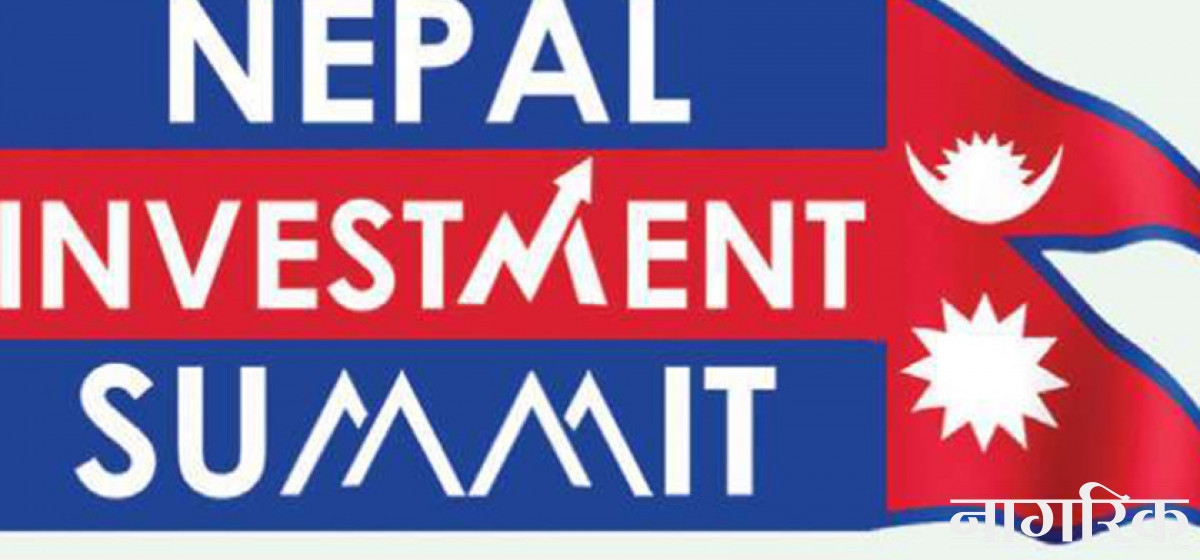
OR
Editorial
Transform investment summit from rituals to real change
Published On: November 29, 2023 07:30 AM NPT By: Republica | @RepublicaNepal

As the government gears up for yet another investment summit on April 21-22, 2024, there is a palpable sense of skepticism lingering in the air. The shadows of unfulfilled promises in the past loom large over the upcoming event, and stakeholders are rightfully concerned that this summit might turn out to be another ceremonial exercise rather than a catalyst for tangible change. The recurring criticism of the government's failure to translate commitments into action after the 2017 and 2019 summits raises questions about the efficacy of the upcoming endeavor. The Ministry of Finance's announcement that the forthcoming summit will prioritize not only foreign investors but also domestic investors and non-resident Nepalis is a welcome shift in perspective. However, this shift alone may not be sufficient to rectify the deep-seated issues that have plagued previous investment summits. The formation of a preparatory committee under the leadership of Finance Minister Prakash Sharan Mahat and the involvement of Sushil Bhatta, CEO of the Investment Board Nepal (IBN), are positive steps. Still, stakeholders caution against hasty decisions without thorough preparation, as witnessed in the past.
Experts have rightly emphasized the need for a critical assessment of the weaknesses of past investment summits. Identifying the shortcomings is the first step towards formulating targeted solutions. The failure to fulfill promises made in terms of creating an environment conducive to the ease of doing business remains a pressing concern. Without tangible benefits for investors, attracting new capital will remain an uphill task. The importance of effective implementation of measures such as hedging, expeditious credit rating for companies, and addressing issues related to land acquisition cannot be ignored. The urgency to transform these measures from mere documents to results-oriented actions cannot be overstated. The government's track record in the aftermath of the 2017 summit, where laws were amended to improve the investment climate, is commendable. However, the sluggish progress in addressing issues like intellectual property rights and repatriation procedures raises doubts about the government's commitment to holistic reform.
One glaring gap that demands immediate attention is the significant difference between approved FDI and actual net FDI inflows, as highlighted by a Nepal Rastra Bank (NRB) survey. In 2021/22, the net FDI inflow was a mere 36.2 percent of the approved amount, signaling a considerable disparity. The government must address this gap by creating a favorable environment that reduces costs and minimizes risks for businesses. The decline in net FDI inflows to a mere Rs 18.6 billion in the same period is a clear indication that the existing environment is deterring foreign investors rather than attracting them. As a newspaper, we believe that the government must conduct a comprehensive evaluation of past shortcomings, actively engage with stakeholders, and implement concrete measures to address identified gaps to ensure that the upcoming summit will not be yet another ritualistic exercise without any tangible result. The skepticism that shrouds past failures can be dispelled only through genuine commitment, transparent communication, and the concrete realization of promises. It's time for the government to listen to the voices of experts and stakeholders, learn from past mistakes, and turn the tide towards a future where investment summits are not just events but catalysts for transformative change in Nepal's economic landscape.
You May Like This

Govt gears up for yet another investment summit amid criticism of failing to fulfill its past commitments
KATHMANDU, Nov 28: While the government has stepped up its efforts to conduct another investment summit, experts and private sector... Read More...

Govt approves FDI worth Rs 22.68 billion during mid-July and mid-February
KATHMANDU, Feb 18: The government approved foreign direct investment (FDI) worth Rs 22.68 billion in the first seven months of... Read More...

Govt starts approval of FDI up to Rs 500 million through fast track
KATHMANDU, Oct 5: The government has simplified the procedures for registration of foreign direct investment (FDI) of up to Rs... Read More...










Just In
- Heavy rainfall likely in Bagmati and Sudurpaschim provinces
- Bangladesh protest leaders taken from hospital by police
- Challenges Confronting the New Coalition
- NRB introduces cautiously flexible measures to address ongoing slowdown in various economic sectors
- Forced Covid-19 cremations: is it too late for redemption?
- NRB to provide collateral-free loans to foreign employment seekers
- NEB to publish Grade 12 results next week
- Body handover begins; Relatives remain dissatisfied with insurance, compensation amount







Leave A Comment